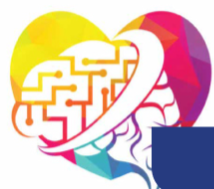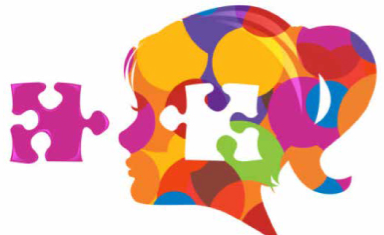Why Are Students Choosing A Bachelors Of Psychology
WHY ARE STUDENTS CHOOSING A BACHELORS PROGRAM IN PSYCHOLOGY?
Psychology has become a popular field of study among students in recent years, with many choosing to pursue a bachelor's program along with a minor specialization. Let's explore what makes Psychology an in-demand domain and understand the rewarding careers in the field.

DIVERSITY OF THE FIELD
One of the primary reasons why students choose to pursue a bachelor's degree in psychology is the diversity of the field. Psychology is a multifaceted subject that covers a wide range of topics, including cognitive processes, human behavior, mental health, and social interactions. This broad scope means students have many options when it comes to choosing a specialization within the field. For example, a student interested in mental health can pursue a career in clinical psychology, while one interested in research can focus on cognitive or experimental psychology. Additionally, the> interdisciplinary nature of psychology means students can explore the subject at the intersection of other domains such as business studies or design.
Example: A student interested in the intersection of psychology and technology could specialize in cyberpsychology, which examines the impact of technology on human behavior. Furthermore, psychology is a constantly evolving field, with new research and discoveries being made every day. This means that students in psychology programs have the opportunity to stay up-to-date with the latest findings and theories. They can also contribute to the advancement of the field through their own research and studies.

VERSATALITY OF THE DEGREE
Another reason why students are attracted to psychology is the versatility of the degree. Graduates of a psychology program have a range of career options available to them, both within and outside of the field. Beyond the field, a psychology degree can also be valuable for careers in human resources, marketing, or social work. The skills developed through a psychology program, such as critical thinking, data analysis, and communication, are transferable to a variety of professions. Example: Students with a bachelor's degree in psychology could pursue a career in market
research, using their knowledge of human behavior and data analysis to help companies understand consumer preferences. Additionally, the versatility of a psychology degree means that students have the freedom to explore different career paths and find the one that best suits their interests and skills. Students who are unsure of what career they want to pursue after graduation can benefit from the flexibility of a psychology degree, as it allows them to explore various fields and specialties.

POTENTIAL TO MAKE DIFFERENCE IN PEOPLE LIFE
Many students choose to pursue a career in psychology because they want to help others. Careers in psychology, such as clinical psychologists, counselors, and social workers, are focused on helping people overcome mental health challenges and improve their overall well-being. Even careers in research, such as those focused on studying the effects of trauma or developing interventions for mental health conditions, can have a significant impact on people's lives.
Example: A student interested in social justice could pursue a career in community psychology, working to promote the well-being of marginalized groups and address social inequities. Furthermore, the potential to make a difference in people's lives is not limited to traditional psychology careers. Students with a psychology degree can also use their skills and knowledge to contribute to their communities in other ways, such as working in advocacy organizations.
In addition, there are several other factors that draw students to the program:
The growing interest in the domain has led to an increase in the number colleges offering undergraduate programs in psychology. Many of these programs offer opportunities for students to gain practical experience through internships, research projects, or service-learning opportunities.
Some career pathways require further education beyond a bachelor's degree, such as a master's or doctoral degree, in order to become licensed or certified. However, even with just a bachelor's degree, students can find employment in a variety of fields and make valuable contributions to society.
The potential for personal growth and self-understanding is also a huge value add. Most students find that studying psychology helps them to better understand themselves and their relationships with others. The field of psychology provides tools and techniques for self-reflection and self- improvement, which can benefit students both personally and professionally. E.g., a student interested in personal development could specialize in positive psychology, which focuses on promoting well-being and happiness through techniques such as gratitude and mindfulness.
The study of psychology can also help students develop important life skills, such as empathy, emotional intelligence, and effective communication.
The reasons why students are choosing to pursue a bachelor's program in psychology are diverse and compelling. The field's broad scope, versatility, potential for personal growth, and the opportunity to make a difference in people's lives contribute to its popularity. Whether students go on to pursue graduate-level education in psychology or use their degree to launch careers in other fields, a bachelor's program in psychology provides a strong foundation for a fulfilling and rewarding career.







